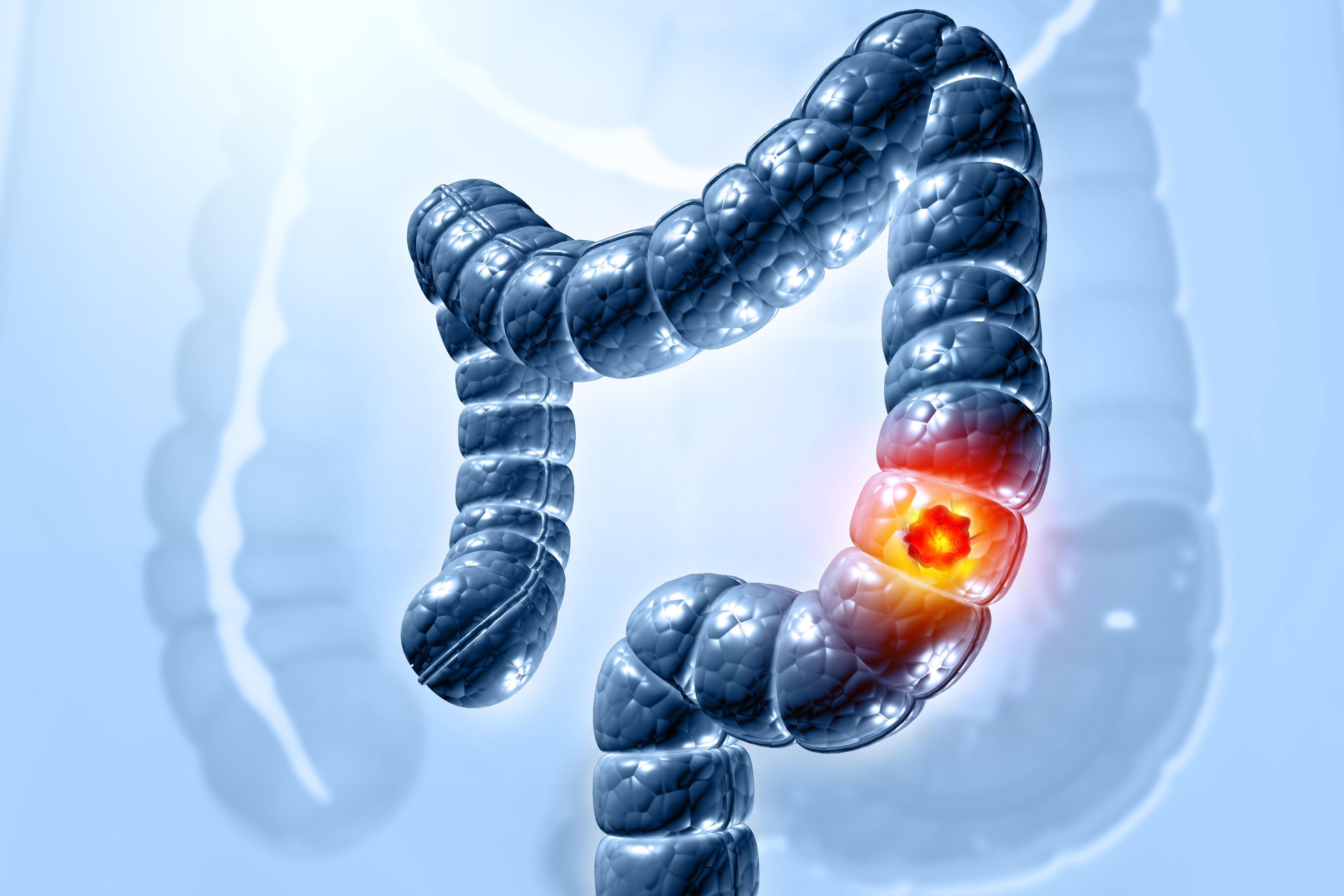
(Vienna, 26 May 2025) KRAS mutations are among the most common genetic alterations in cancer and are considered particularly difficult to treat. In colon cancer, the second most common cause of cancer death, such mutations severely limit therapeutic options. The results of a study led by the Center for Cancer Research at the Medical University of Vienna, recently published in the journal EMBO Molecular Medicine, now raise a previously little-considered strategy: the targeted blockade of the EGFR signaling pathway – even in the presence of a KRAS mutation. This could make KRAS-mutated colon cancer more treatable than previously thought.
"Our results show that EGFR, a receptor on the cell surface of many cells, also plays an active role in KRAS-mutated colorectal tumours – and in a different way than previously thought," explains first author Dana Krauß (Center for Cancer Research at the Medical University of Vienna and Comprehensive Cancer Center Vienna of MedUni Vienna and University Hospital Vienna). "This finding contradicts the long-held assumption that this receptor has no therapeutic relevance in tumors with a KRAS mutation."
Using so-called tumor organoids – mini-tumours made from colon cancer cells isolated from specific mouse models – the research team was able to demonstrate that the removal of EGFR has a profound effect on the metabolism of cancer cells. The cells processed sugar and amino acids in a completely different way – an indication of new vulnerabilities in KRAS-mutated tumours. In addition, EGFR blockade activated a specific gene signature associated with longer survival of colorectal cancer (CRC) patients with KRAS mutations.
Gene could play a key role
EGFR was previously considered an ineffective therapeutic target in KRAS-mutated tumours. However, metabolic analyses have now shown that EGFR blockade in colorectal organoids slows down sugar metabolism (glycolysis) and causes tumour cells to switch to glutamine instead – a fundamental change in cell metabolism. At the same time, key growth signalling pathways were significantly weakened. Also surprising was the observed reduction in cell size and the activation of stem cell signatures and the Wnt signaling pathway known to be involved in CRC development – an indication that the tumor cells respond to EGFR blockade with an alternative developmental program. The Smoc2 gene was discovered to play a key role in these processes: it is responsible for rewiring the cell metabolism and for activating new signalling networks. By analysing extensive patient data sets, the researchers were also able to show that the identified gene signature is associated with better survival in patients with KRAS-mutated CRC.
Current practice called into question
These findings provide a mechanistic explanation for why EGFR also plays a role in KRAS-mutated tumours – and call into question the current practice of excluding such patients from EGFR-targeted therapies. At the same time, they strengthen the approach of developing combination therapies that block both EGFR and KRAS in the future. Although clinical trials are still pending, the data show that KRAS-mutated CRC may be more treatable than previously thought. "This research shows how important it is to critically question assumptions – especially in diseases for which there are currently few effective therapies," emphasises study leader Maria Sibilia, Head of the Center for Cancer Research at MedUni Vienna.
Publication: EMBO Molecular Medicine
EGFR controls transcriptional and metabolic rewiring in KRASG12D colorectal cancer
Dana Krauß, Veronica Moreno-Viedma, Emi Adachi-Fernandez, Cristiano de Sá Fernandes, Jakob-Wendelin Genger, Ourania Fari, Bernadette Blauensteiner, Dominik Kirchhofer, Nikolina Bradaric, Valeriya Gushchina, Georgios Fotakis, Thomas Mohr, Ifat Abramovich, Inbal Mor, Martin Holcmann, Andreas Bergthaler, Arvand Haschemi, Zlatko Trajanoski. Juliane Winkler, Eyal Gottlieb, Maria Sibilia
https://doi.org/10.1038/s44321-025-00240-4